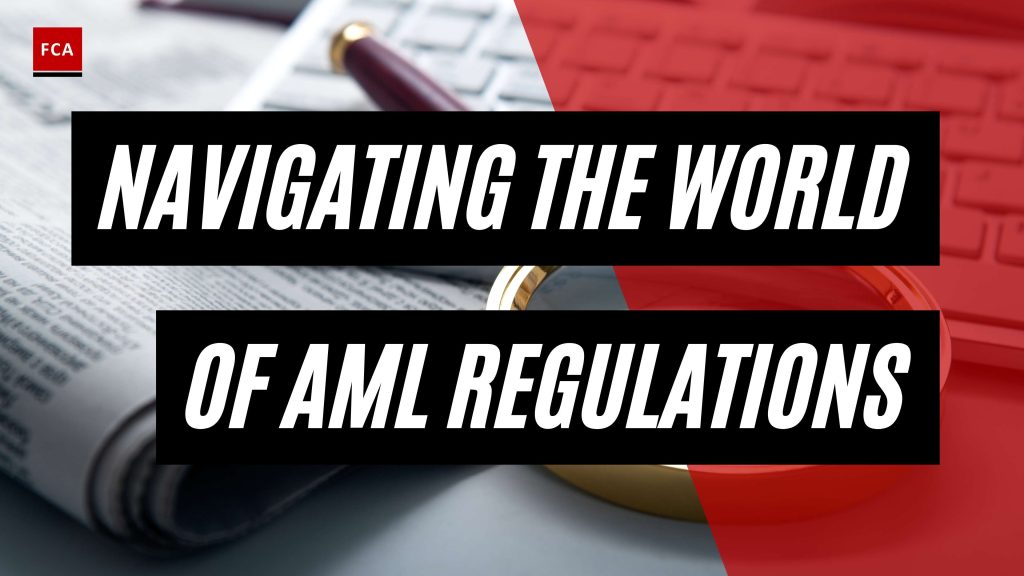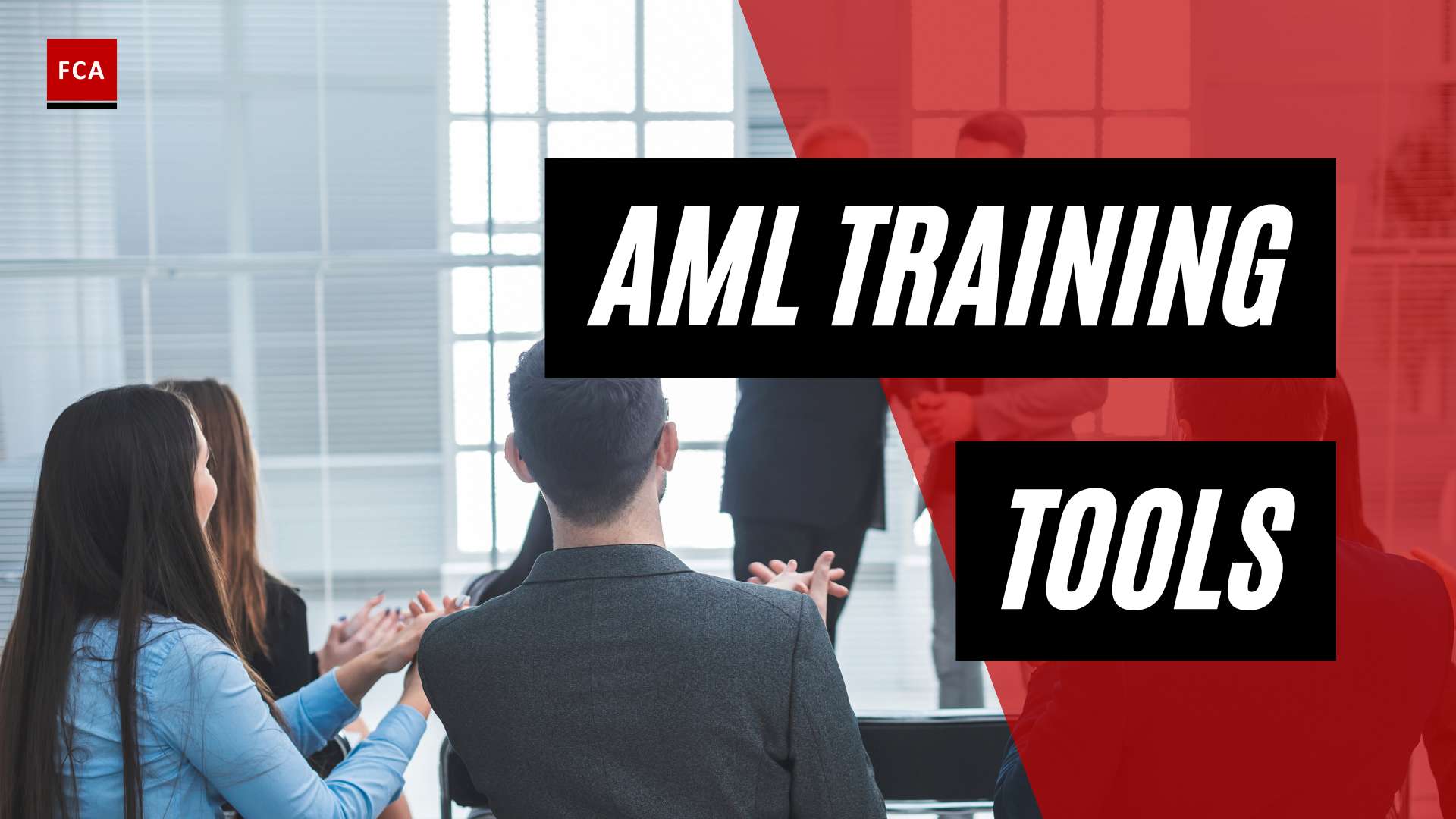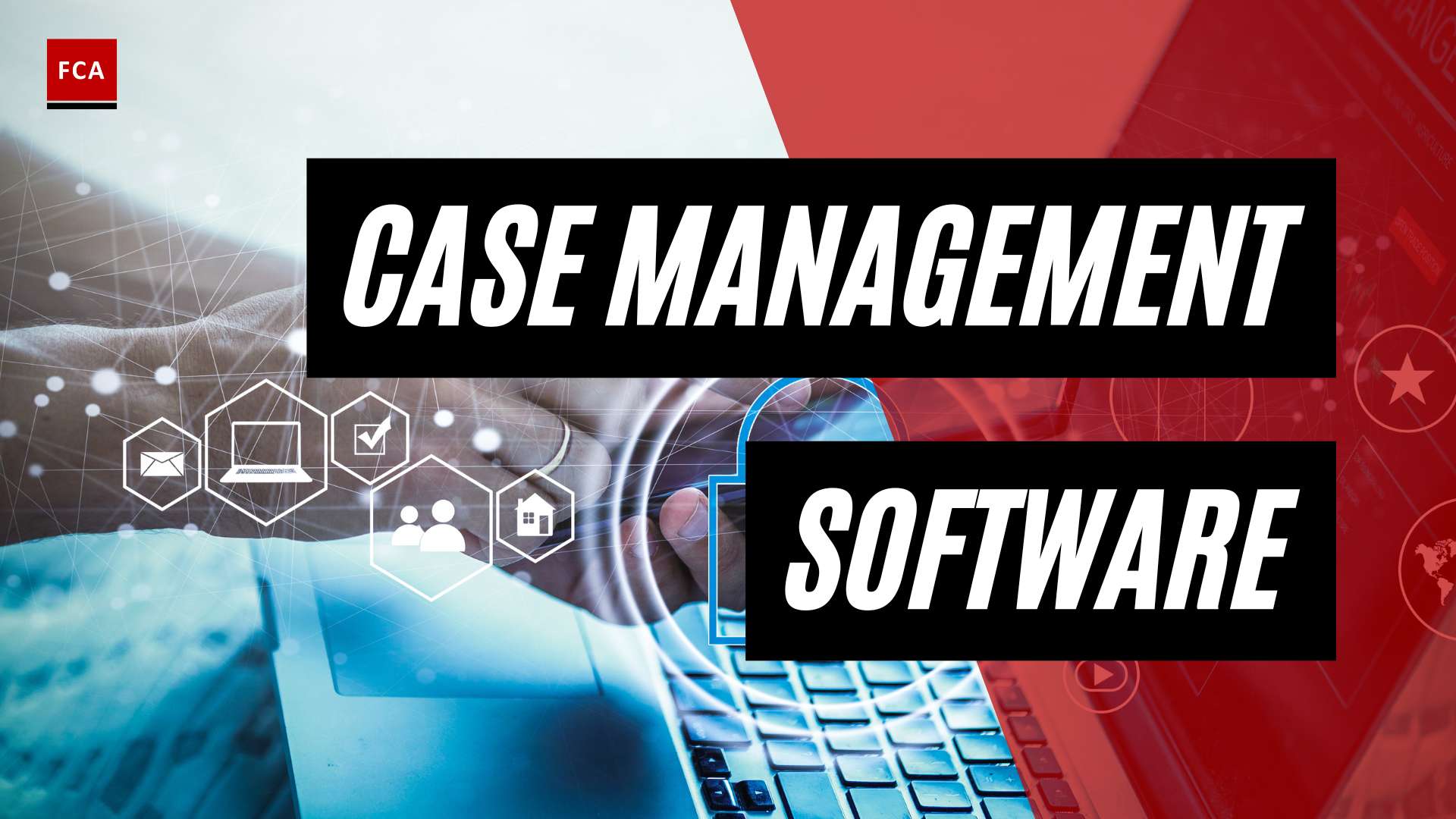Anti-Money Laundering (AML) Regulations: An Overview
To navigate the world of Anti-Money Laundering (AML) regulations, it’s essential to have a clear understanding of what AML entails and why these regulations are of utmost importance.
What is AML?
Anti-Money Laundering (AML) refers to a set of laws, regulations, and procedures implemented to detect and prevent the illegal process of disguising the origins of illicitly obtained funds. Money laundering involves transforming “dirty” money, obtained through criminal activities, into “clean” money that appears legitimate.
AML regulations aim to combat money laundering by establishing a framework that requires financial institutions and certain businesses to implement strong compliance measures. These measures help identify and report suspicious activities, ensuring that illegal funds are not integrated into the legitimate financial system.
The Importance of AML Regulations
AML regulations play a vital role in maintaining the integrity of the global financial system. Here are some key reasons why AML regulations are of utmost importance:
- Preventing criminal activities: By implementing AML regulations, governments and regulatory bodies aim to prevent criminals from successfully laundering money derived from illegal activities such as drug trafficking, corruption, fraud, and terrorism.
- Protecting the financial system: Money laundering poses a significant threat to the stability and security of the financial system. AML regulations help safeguard the integrity of financial institutions and protect them from becoming unwitting accomplices in illegal activities.
- Enhancing global cooperation: Money laundering is a global issue that requires international cooperation. AML regulations promote collaboration among countries, enabling the exchange of information and intelligence to identify and disrupt money laundering networks.
- Preserving trust and confidence: A robust AML framework instills trust and confidence in the financial system. When individuals and businesses have faith in the system’s ability to prevent illicit financial activities, they are more likely to participate in legitimate economic activities.
- Compliance with international standards: AML regulations are often aligned with international standards set by organizations such as the Financial Action Task Force (FATF). Adhering to these standards ensures that countries maintain their reputation and standing in the global financial community.
By comprehending the significance of AML regulations, professionals in the field are better equipped to navigate the complexities of the regulatory landscape. Developing the necessary skills and knowledge to understand and implement AML measures is essential for individuals pursuing a career in AML. For more information on the skills required for AML professionals, check out our article on anti-money laundering skills.
In the next section, we will explore the specific skills that are crucial for individuals working in the field of AML.
Skills Required for AML Professionals
Working in the field of Anti-Money Laundering (AML) requires a specific set of skills to effectively navigate the complex world of regulatory compliance. AML professionals play a crucial role in detecting and preventing money laundering activities. Let’s explore the key skills that are essential for success in this field.
Strong Analytical Skills
AML professionals need to possess strong analytical skills to effectively analyze financial data and detect suspicious transactions. This involves the ability to review large volumes of data, identify patterns, and assess the risk associated with certain activities. Analytical skills enable AML professionals to connect the dots, uncover potential money laundering schemes, and take appropriate action.
Knowledge of Regulatory Frameworks
A deep understanding of AML regulations and the regulatory frameworks governing financial institutions is vital for AML professionals. They must stay up to date with the latest AML laws and guidelines set forth by regulatory bodies such as the Financial Action Task Force (FATF) and local regulatory authorities. This knowledge ensures compliance with AML regulations, helps in the implementation of effective AML programs, and facilitates the identification of suspicious activities.
Attention to Detail
Attention to detail is a critical skill for AML professionals. The ability to carefully examine and assess financial transactions, customer information, and other relevant data is paramount in detecting potential money laundering activities. AML professionals must pay close attention to discrepancies, anomalies, and red flags that may indicate suspicious behavior. This meticulousness helps in the accurate reporting of suspicious transactions and ensures compliance with regulatory requirements.
To excel in the field of AML, professionals should continuously develop and enhance their skills. This can be accomplished through training programs, certifications, and staying informed about the latest industry trends. By honing their analytical abilities, staying knowledgeable about regulatory frameworks, and maintaining a keen eye for detail, AML professionals can effectively contribute to the fight against money laundering activities.
For more information on the skills required for a successful career in AML, refer to our articles on anti-money laundering skills and aml career skills.
Understanding AML Regulations
To navigate the world of Anti-Money Laundering (AML) regulations effectively, it is crucial to have a solid understanding of key concepts and requirements. This section will explore three essential components of AML regulations: Know Your Customer (KYC) requirements, Suspicious Activity Reporting (SAR), and Transaction Monitoring.
Know Your Customer (KYC) Requirements
KYC requirements are an integral part of AML regulations. They involve the process of verifying and identifying customers to assess their risk levels and ensure compliance with AML laws. KYC procedures typically involve collecting and verifying customer information, such as their identity, address, and source of funds.
The goal of KYC requirements is to prevent money laundering and other financial crimes by enabling financial institutions to have a clear understanding of their customers’ identities and financial activities. By implementing robust KYC procedures, organizations can mitigate the risk of facilitating illicit transactions and maintain the integrity of the financial system.
Suspicious Activity Reporting (SAR)
SAR plays a crucial role in AML efforts. It refers to the process of reporting any suspicious transactions or activities that may indicate potential money laundering or other illegal activities. Financial institutions are required to have systems in place to detect and report suspicious activities promptly.
The reporting of suspicious activities is vital for the detection and prevention of money laundering. It ensures that law enforcement agencies have the necessary information to investigate and take appropriate action. SAR enables financial institutions to contribute to the collective effort of combating money laundering and protecting the integrity of the financial system.
Transaction Monitoring
Transaction monitoring is a fundamental aspect of AML regulations. It involves the ongoing surveillance and analysis of customer transactions to detect and identify any unusual or potentially suspicious activities. Financial institutions employ advanced technological tools and systems to monitor transactions in real-time and identify patterns indicative of illicit behavior.
By implementing effective transaction monitoring systems, organizations can identify potential risks, such as unusual transaction amounts, frequency, or destinations. This enables them to take necessary actions, such as filing SARs or conducting further investigations, to prevent money laundering activities.
Understanding the intricacies of these AML regulations is essential for AML professionals to carry out their roles effectively. It is vital for professionals to stay up to date with the latest developments and changes in regulations to ensure compliance and contribute to the fight against financial crimes.
For professionals aiming to advance their AML careers, gaining knowledge in KYC requirements, SAR, and transaction monitoring is crucial. Additionally, obtaining relevant professional certifications and gaining practical experience can further enhance one’s expertise in AML regulations. For more information on AML certification requirements and other essential skills in the field, visit our articles on AML certification requirements and anti-money laundering skills.
Staying Up to Date with AML Regulations
To excel in the field of Anti-Money Laundering (AML), professionals must stay up to date with the ever-evolving AML regulations. Here are three key strategies for ensuring continuous learning and professional development in the field of AML.
Continuous Learning and Professional Development
Continual learning is essential for AML professionals to stay current with the latest AML regulations and best practices. AML practitioners should actively seek opportunities for professional development, such as attending relevant conferences, workshops, and webinars. These events provide valuable insights into emerging trends, regulatory updates, and innovative approaches to combating money laundering.
Additionally, AML professionals can pursue industry-specific certifications and designations to enhance their knowledge and credibility. For more information on AML certification requirements, refer to our article on aml certification requirements.
Industry Resources and Publications
Access to industry resources and publications is crucial for AML professionals to stay informed about the latest developments in AML regulations. AML practitioners should regularly engage with reputable sources such as industry publications, research papers, and regulatory updates. These resources provide valuable insights into regulatory changes, case studies, and best practices.
Furthermore, joining professional organizations and subscribing to their newsletters or journals can provide AML professionals with access to exclusive content and networking opportunities. These platforms facilitate knowledge sharing, collaboration, and discussions on relevant AML topics. By staying connected to the AML community, professionals can gain valuable insights and expand their professional network.
Networking and Collaboration
Networking and collaboration play a vital role in staying up to date with AML regulations. Engaging with peers and industry experts allows AML professionals to exchange ideas, discuss emerging trends, and learn from each other’s experiences. Attending industry conferences, joining professional associations, and participating in online forums or discussion groups are effective ways to build a strong professional network. For more information on the skills required for AML professionals, refer to our articles on anti-money laundering skills, aml analyst skills, aml investigator skills, aml professional skills, aml career skills, aml compliance skills, aml reporting skills, and aml software proficiency.
Collaboration with colleagues and cross-functional teams is equally important. Sharing insights, discussing complex cases, and working together to develop effective AML strategies can enhance professional growth and expand knowledge. By fostering a culture of collaboration, AML professionals can collectively stay ahead of the curve and effectively combat money laundering activities.
By embracing continuous learning, leveraging industry resources, and actively engaging in networking and collaboration, AML professionals can maintain a strong understanding of AML regulations and adapt to the evolving landscape of financial crime.
Advancing Your AML Career
If you’re looking to advance your career in Anti-Money Laundering (AML), there are several key steps you can take to enhance your expertise and increase your professional opportunities. This section will explore three important aspects of advancing your AML career: obtaining professional certifications and designations, gaining practical experience, and building a strong professional network.
Professional Certifications and Designations
Obtaining relevant certifications and designations in the field of AML can significantly enhance your credibility and open up new career opportunities. These certifications demonstrate your knowledge and understanding of AML regulations and best practices. Some widely recognized AML certifications include:
Earning these certifications showcases your commitment to staying current with AML regulations and your dedication to professional growth. Be sure to research the specific requirements and eligibility criteria for each certification, as they may vary. For more information on AML certification requirements, refer to our article on aml certification requirements.
Gaining Practical Experience
While theoretical knowledge is essential, gaining practical experience in the field of AML is equally valuable. Practical experience allows you to apply your knowledge to real-world scenarios and enhances your understanding of the intricacies involved in AML compliance.
Consider seeking opportunities to work in roles that directly involve AML compliance, such as an AML analyst or investigator. These positions offer exposure to AML-related tasks, such as conducting investigations, analyzing transactions, and preparing reports. Practical experience not only hones your skills but also provides valuable insights into the challenges and nuances of AML compliance.
Building a Strong Professional Network
Building a strong professional network is crucial for career growth in the AML field. Networking allows you to connect with like-minded professionals, share knowledge, and stay informed about industry trends and opportunities. Here are some effective ways to build your professional network:
- Attend industry conferences, seminars, and workshops: These events provide valuable opportunities to meet professionals in the AML field, exchange ideas, and expand your network.
- Join professional associations and organizations: Associations such as the Financial Crime Academy (FCA) offer networking platforms, educational resources, and industry updates.
- Engage in online communities and forums: Participating in online communities and forums dedicated to AML professionals allows you to connect with individuals from around the world, exchange insights, and stay up to date with industry discussions.
Remember, networking is a two-way street. Be proactive in offering support, sharing knowledge, and helping others in your network. By actively engaging in your professional network, you can establish yourself as a valuable resource and create mutually beneficial relationships.
By pursuing professional certifications, gaining practical experience, and building a strong professional network, you can position yourself for advancement and success in your AML career. Continuously seek out opportunities for learning, stay updated on regulatory changes, and remain committed to enhancing your skills. With dedication and a proactive approach, you can navigate the world of AML regulations and achieve your professional goals.








